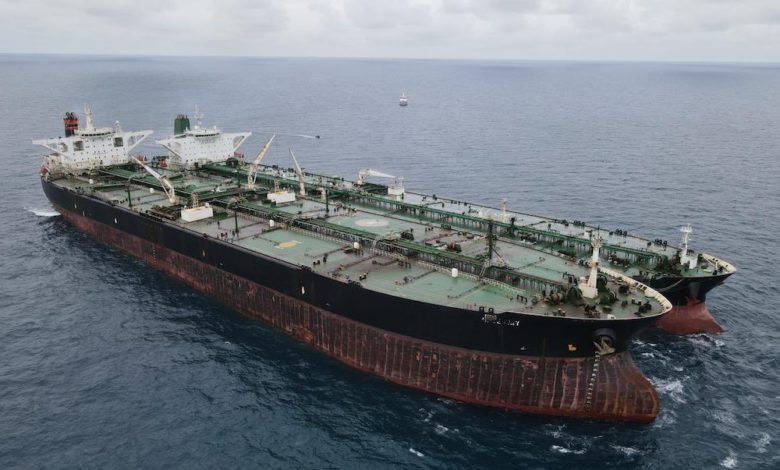IMO to debate threats posed by increasing ship-to-ship transfers

Member states of the International Maritime Organization (IMO) will debate a proposal to clamp down on ship-to-ship transfers at the next meeting of the United Nations body’s legal committee this spring.
In the wake of sanctions against Russia, the volume of ship-to-ship transfers has soared with Russia taking cargoes from its coast on smaller tankers and then moving them onto larger ships before heading to the likes of India and China, a trend that has alarmed many governments at the potential environmental risks posed.
Australia, Canada and United States have sent the IMO a joint submission raising concerns for the global liability and compensation regime relating to the increase in ship-to-ship transfers in the open ocean.
The submission argues that these transfers undermine the rules-based international order, increase the risk of pollution to nearby coastal states and also threaten the shared liability and compensation regime set out in the 1992 Civil Liability Convention and the 1992 Fund Convention and its supplementary fund protocol. The submission also argues the rise of Russian-backed ship-to-ship transfers undermines the fundamental principle of the polluter-pays regime if the so-called ‘dark’ ships and shipowners involved cannot be identified and held liable for damage caused by the oil carried on board their ships.
“These risky practices unjustly expose national and local governments and authorities to potentially fill the void of paying for response and clean-up costs and compensating victims where no international or domestic compensation fund can do so,” the submission states.
Australia, Canada and United States are calling on flag states to ensure that tankers under their flag adhere to measures which lawfully prohibit or regulate ship-to-ship transfers, and that such vessels further adhere to the spirit of the safety requirements in IMO conventions and practice safe shipping standards to minimise the risk of oil pollution. Furthermore, the three countries have suggested flag states should consider requiring that vessels update their ship-to-ship operations manuals to include notifying their flag state when they are engaged in a mid-ocean operation. Additionally, the three countries have called on port states to ensure enforcement of the safety and liability conventions on these vessels and ensure that ship-to-ship transfer operations are conducted in accordance with the applicable safety requirements in IMO conventions.
Finally, the submission suggests that should port states become aware of any ships going dark, they should consider subjecting such vessels to enhanced inspections as authorised, and notifying the respective vessel’s flag administration as appropriate.
Ship-to-ship transfer hotspots over the last year have emerged in Southeast Asia as well as off Kalamata in Greece, and off Cueta, a Spanish outpost on the North African coastline
According to Bloomberg data, the volume of ship-to-ship transfers off Kalamata in Greece’s Bay of Lakonikos soared last month to more than 10m barrels, equivalent to 360,000 barrels a day. That compares with 4.4m barrels, equivalent to 156,000 barrels a day transferred off Ceuta.
This pattern has piqued the interest of EU regulators, especially since many Russian-linked tankers now use alternative insurers. The chances of obtaining a payout from a new Russian government-backed insurance fund in the event of an ship-to-ship accident and spill are unclear.
Israeli data firm Windward has detailed how Ceuta – an autonomous Spanish city on the north coast of Africa – has grown as a hub for Russian oil in the last year. Bordered by Morocco, Ceuta lies along the boundary between the Mediterranean Sea and the Atlantic Ocean. The area is also known as a hub for drug trafficking.

If a Russian insurance firm (or an insurance firm offering insurance for one of these dark vessels) was willing and able to make a payout, would sanctions even allow them to pay a western entity?
Why don’t they discuss weaponisation of marine insurance? Being monopolist the west is using marine insurance as a weapon against non-obeying counties. How all that comply with safety and environmental protection policies? What about increasing STS transfers in GoM? What a bunch of hypocrites!
Kindly what’s GoM ? I am a new man in petroleum.🤔